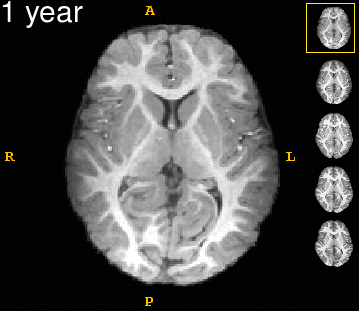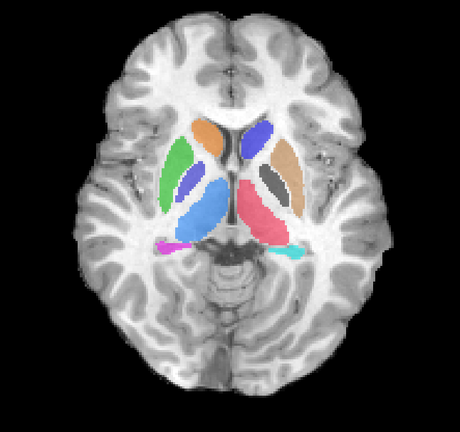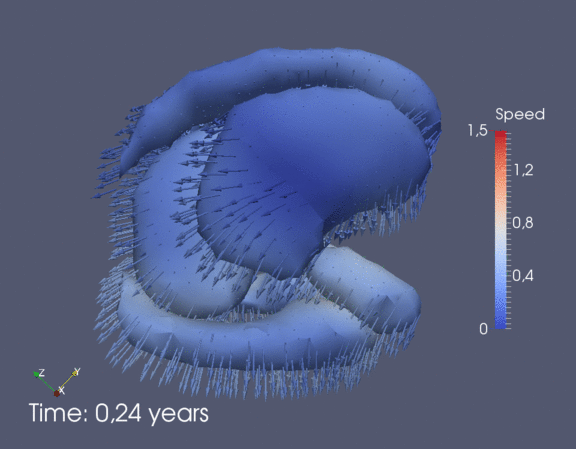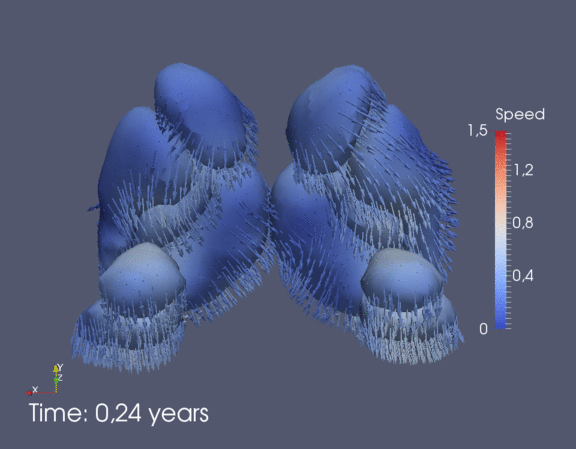Difference between revisions of "Project Week 25/SALT Spatiotemporal Modeling:"
Jfishbaugh (talk | contribs) |
|||
| Line 15: | Line 15: | ||
|- style="vertical-align:top;" | |- style="vertical-align:top;" | ||
|<!-- Objective bullet points --> | |<!-- Objective bullet points --> | ||
| − | Slicer Shape AnaLysis Toolbox (SlicerSALT) is a standalone version of Slicer specifically for shape analysis, currently under development. One aspect of the project is the validation of the tools to be included in SlicerSALT. In this project, we will begin validating the shape regression component with a longitudinal database of subcortical structures. | + | Slicer Shape AnaLysis Toolbox ([http://github.com/Kitware/SlicerSALT SlicerSALT]) is a standalone version of Slicer specifically for shape analysis, currently under development. One aspect of the project is the validation of the tools to be included in SlicerSALT. In this project, we will begin validating the shape regression component with a longitudinal database of subcortical structures. |
| + | |||
| + | The longitudinal infant data has been collected as part of the NIH funded UNC Psychiatry CONTE project to study early brain development in infants at risk for mental illness (PI [https://www.med.unc.edu/psych/earlybraindevresearch/people/principal-investigators/john-gilmore John H. Gilmore]), Distinguished Professor, Director of the Early Brain Development Program, UNC Chapel Hill, Department of Psychiatry). | ||
|<!-- Approach and Plan bullet points --> | |<!-- Approach and Plan bullet points --> | ||
Revision as of 10:06, 30 June 2017
Home < Project Week 25 < SALT Spatiotemporal Modeling:
Back to Projects List
Key Investigators
- James Fishbaugh (NYU Tandon School of Engineering, USA)
- Guido Gerig (NYU Tandon School of Engineering, USA)
Project Description
| Objective | Approach and Plan | Progress and Next Steps |
|---|---|---|
|
Slicer Shape AnaLysis Toolbox (SlicerSALT) is a standalone version of Slicer specifically for shape analysis, currently under development. One aspect of the project is the validation of the tools to be included in SlicerSALT. In this project, we will begin validating the shape regression component with a longitudinal database of subcortical structures. The longitudinal infant data has been collected as part of the NIH funded UNC Psychiatry CONTE project to study early brain development in infants at risk for mental illness (PI John H. Gilmore), Distinguished Professor, Director of the Early Brain Development Program, UNC Chapel Hill, Department of Psychiatry). |
Longitudinal dataset consists of 553 subjects with a total of 1530 scans. MR images are acquired at clustered ages of 1, 2, 4, 6, 8, and 10 years of age. Subjects commonly have missing data points, though many subjects have 3 or more more scans. We focus this week on getting the data organized, setting up the processing pipeline, as well as estimating a model for a single subject. We would also like to identify Slicer tools that are helpful for our analysis, to be considered for inclusion in Slicer SALT. |
|
Illustrations
Left) Acquisitions of a single subject with observations at 1, 2, 4, 6, and 8 years old. Right) Sub-cortical structures are segmented for each time point.
 |

|
Continuous spatiotemporal model of all subcortical structures from 0 to 8 years of age. Color denotes speed in mm/year, with vectors showing direction of growth. Two views of the same growth trajectory is shown below, from the side and from the front.
 |

|
Background and References
[1] Fishbaugh, J., Durrleman, S., Prastawa, M., Gerig, G. Geodesic shape regression with multiple geometries and sparse parameters. Medical Image Analysis. Vol 39. pp. 1-17. (2017)
[2] Fishbaugh, J., Durrleman, S., Gerig, G. Estimation of smooth growth trajectories with controlled acceleration from time series shape data. Proc. of Medical Image Computing and Computer Assisted Intervention (MICCAI '11). Vol 6892, pp. 401-408. (2011)